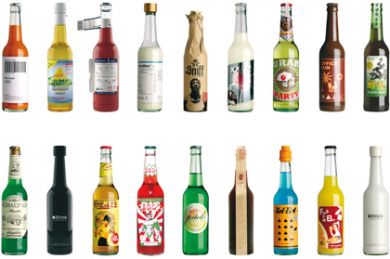
“Mundus vult decipi, the world wants to be seduced and deceived” once said philosopher and media theorist Norbert Bolz with regard to advertisements, pointing out that good advertisements functioned via the mechanism of love’s infatuation: The product it promotes seems to be exactly what has been the missing key to our happiness. By making us believe that it will complete us with what we don’t have yet – which in terms of love would be another person –, it also prevents us from recognising what we are really lacking, and instead, we are more than willing to let ourselves be blinded by it.
The staging of brand worlds and the suggestive power exerted by advertisements are the topics of these drink packagings. In the form of newly created products, they demonstrate how brands and brand claims are staged, to dramatise the messages they are designed to convey. The designers, who also adopted the roles of copywriters, brand managers and packaging designers, were asked to both explore and reveal the mechanism and strategies of advertising. Parodies and inversions such as “Abraxa – the drinkable body cleansing lotion” and “Bifi – the sausage quencher” make it immediately clear, how minimal changes can counteract meaning and how brands are generally used to create entire lifestyles.
Reference:
http://www.red-dot.de/


